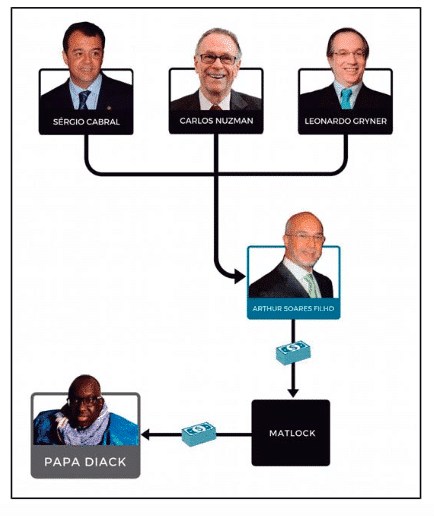The head of Brazil’s Olympics committee has been detained for his alleged role in a bribery scheme to win the bid for the 2016 Rio Olympic Games, a scandal that illustrates the multilayered nature of systematized graft in Brazil.
Carlos Arthur Nuzman, the president of Brazil’s Olympics committee, was detained on October 5 based on accusations that he conspired to bribe members of the International Olympics Committee (IOC) to ensure the selection of Rio de Janeiro as host city for the 2016 games.
Brazilian prosecutor Fabiana Schneider described Nuzman as “the bridge that linked the criminal scheme together.”
Leonardo Gryner, the former director of Brazil’s Olympics committee who is considered by prosecutors to be Nuzman’s “right-hand man,” was also detained on October 5.
The arrests follow raids last month on Nuzman’s home and the offices of Brazil’s Olympics committee, during which authorities seized assets as well as documents and a computer.
The search of Nuzman’s home also led to the discovery of a key to a safe in Switzerland where Nuzman reportedly stashed 6 bars of gold, which he did not disclose in his tax filings until weeks after the raid. As a result, prosecutors have accused Nuzman of failing to declare assets held abroad, and thus obstructing the investigation.

(Diagram of the players involved in the cash-for-votes Olympics bid scheme, courtesy of Brazil Attorney General’s Office)
The vote-buying scheme to secure the Rio bid was uncovered by a joint international operation dubbed “Unfair Play,” which according to the Attorney General’s Office involves Nuzman, Gryner and several other officials and businessmen in Brazil and abroad.
Authorities issued an arrest warrant last month for “King” Arthur Soares, a Miami-based Brazilian businessman accused of paying a $2 million bribe to Papa Massata Diack, the son of Lamine Diack, an influential Senegalese IOC member.
Former Rio State Governor Sérgio Cabral has also been implicated in the international criminal conspiracy to secure the bid. Cabral was already sentenced earlier this year to 14 years in prison for corruption and money laundering tied to the Rio games.
French authorities are also involved in the investigation, which includes an inquiry into the actions of the bank that processed the bribe to Papa Massata Diack, who remains in Senegal where he has eluded an Interpol arrest warrant since last year in relation to a separate sports corruption scandal.
InSight Crime Analysis
The cash-for-votes graft scheme uncovered by Operation Unfair Play is perhaps the clearest example of just how systemic corruption actually is in Brazil. In this case, elites allegedly engaged in a transnational graft scheme that was intended to create new opportunities for their own illicit enrichment.
SEE ALSO: Brazil News and Profiles
As one prosecutor put it, the games were used “as a trampoline to commit Olympic-size acts of corruption.” The massive construction undertaken for the games allowed lucrative contracts to be used to siphon public funds into the already flush pockets of crooked Brazilian elites. Many of the now empty and unused facilities built for the games stand as a reminder that for these powerful interests, the games were a great success.

